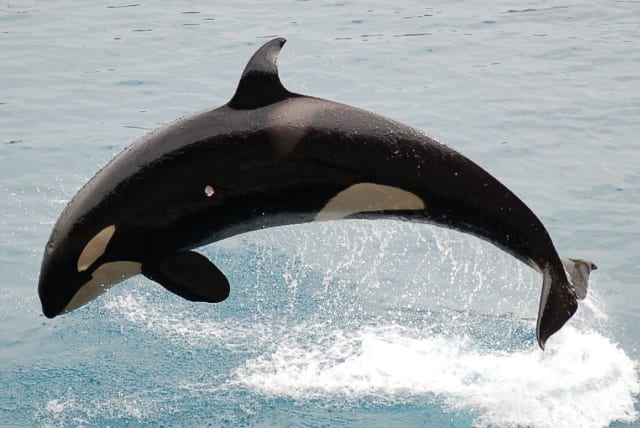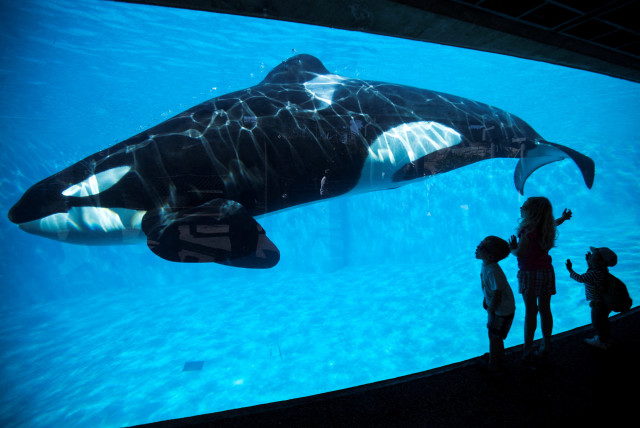Why are orcas capsizing, sinking ships off the Iberian coast?

A group of orcas attacked the Mustique on its way to Gibraltar, prompting its crew of four to contact Spanish authorities for help.
A group of orcas broke the rudder and pierced the hull after ramming into the Mustique on its way to Gibraltar on Thursday morning, prompting its crew of four to contact Spanish authorities for help, a spokesman for the maritime rescue service said.
The service deployed a rapid-response vessel and a helicopter carrying a bilge pump to assist the 20-meter (66 feet) vessel, which was sailing under a British flag, he added. The Mustique was towed to the port of Barbate, in the province of Cadiz, for repairs.
According to the research group GTOA, which tracks populations of the Iberian orca sub-species, the incident follows at least 20 interactions this month alone in the Strait of Gibraltar between small vessels and the highly social apex predators. In 2022, there were 207 reported interactions, GTOA data showed.
The culprits behind the sinking ships, orcas who also go by the title 'killer whales', have been piercing the rudders of ships and slamming against the boats with their full body weight, a witness reported after being saved by Spanish coast guards.
Guidelines issued by the Spanish Transport Ministry stipulate that whenever ships observe any alteration in the behavior of orcas - such as sudden changes of direction or speed - they should leave the area as soon as possible and avoid further disturbance to the animals during the maneuvers.
Every interaction between a ship and an orca must be reported to authorities, the ministry added.
Scientists have explained the peculiar and destructive behavior in a peer-reviewed article published in the journal Marine Mammal Science.
"The reports of interactions have been continuous since 2020 in places where orcas are found, either in Galicia or in the Strait," co-author Alfredo López Fernandez, University of Aveiro.
"In more than 500 interaction events recorded since 2020, there are three sunken ships. We estimate that killer whales only touch one ship out of every hundred that sail through a location."
Earlier in May, the sailing yacht Alboran Champagne suffered a similar impact from three orcas half a nautical mile off Barbate. The ship could not be towed as it was completely flooded and was left adrift to sink.
"There were two smaller and one larger orcas," skipper and witness Werner Schaufelberger told Yacht. "The little ones shook the rudder at the back while the big one repeatedly backed up and rammed the ship with full force from the side."
"The two little orcas observed the bigger one's technique and, with a slight run-up, they too slammed into the boat,” the witness added.
Why are the orcas attacking the boats?
Researchers believe that a traumatic incident may have impacted a single orca, who then taught the rest of the orcas this behavior in response.
"The orcas are doing this on purpose, of course, we don't know the origin or the motivation, but defensive behavior based on trauma, as the origin of all this, gains more strength for us every day," said Fernandez.
While this hasn’t been fully confirmed, the researchers suspect that a female orca, named White Gladis, might have been the victim of the initial trauma. They believe that she experienced a moment of agony as a result of illegal fishing. "That traumatized orca is the one that started this behavior of physical contact with the boat," Fernandez said.
Although Fernandez adds that the orcas may not have bad intentions, adding that "They are incredibly curious and playful animals and so this might be more of a plaything as opposed to an aggressive thing.”
"We do not interpret that the orcas are teaching the young, although the behavior has spread to the young vertically, simply by imitation, and later horizontally among them, because they consider it something important in their lives."
The Environment and Climate Change portal is produced in cooperation with the Goldman Sonnenfeldt School of Sustainability and Climate Change at Ben-Gurion University of the Negev. The Jerusalem Post maintains all editorial decisions related to the content.
Jerusalem Post Store
`; document.getElementById("linkPremium").innerHTML = cont; var divWithLink = document.getElementById("premium-link"); if (divWithLink !== null && divWithLink !== 'undefined') { divWithLink.style.border = "solid 1px #cb0f3e"; divWithLink.style.textAlign = "center"; divWithLink.style.marginBottom = "15px"; divWithLink.style.marginTop = "15px"; divWithLink.style.width = "100%"; divWithLink.style.backgroundColor = "#122952"; divWithLink.style.color = "#ffffff"; divWithLink.style.lineHeight = "1.5"; } } (function (v, i) { });

